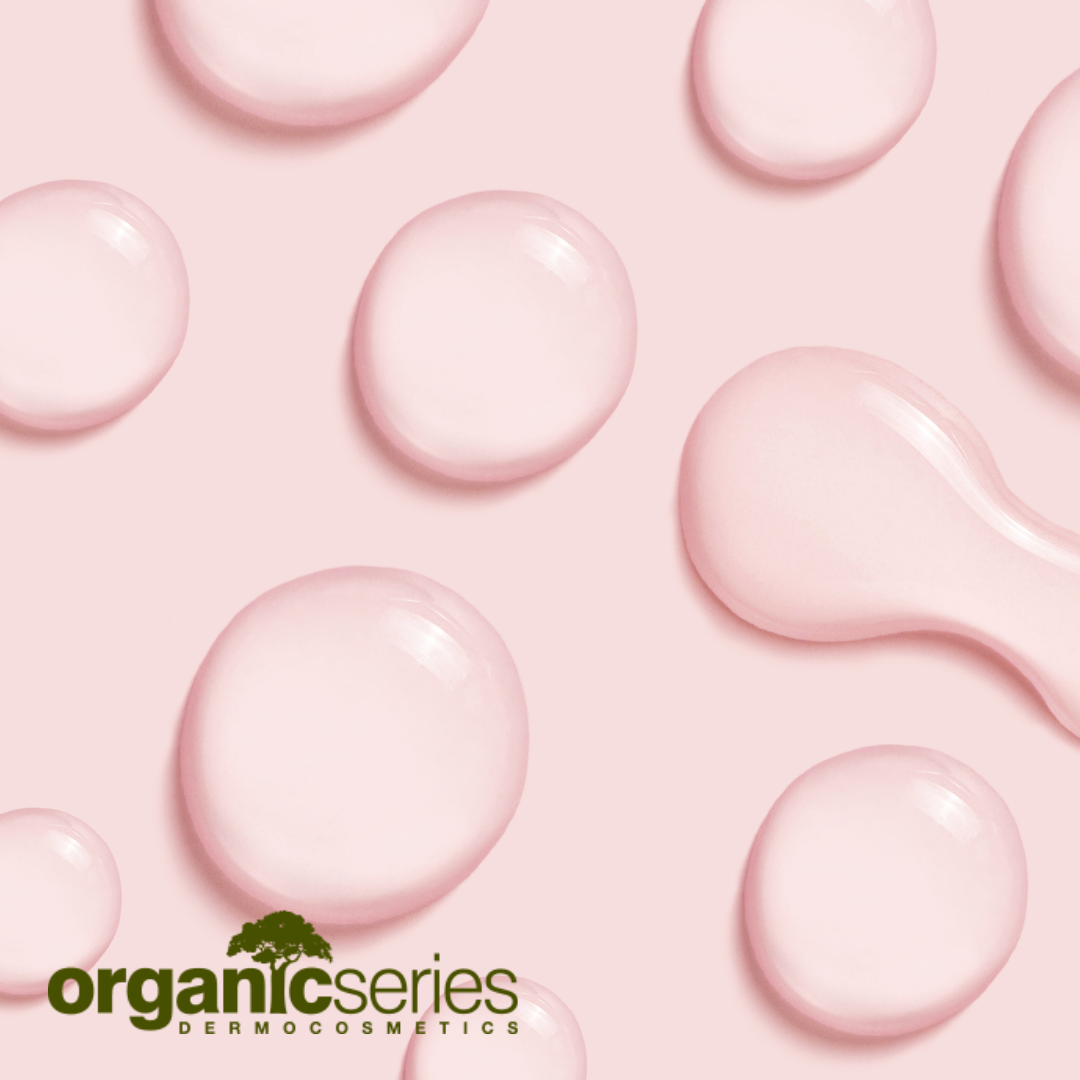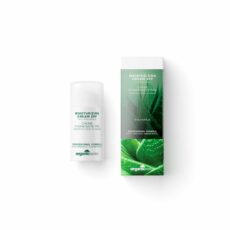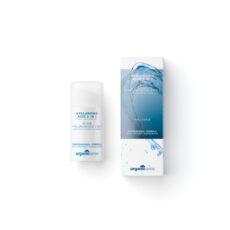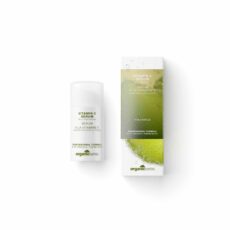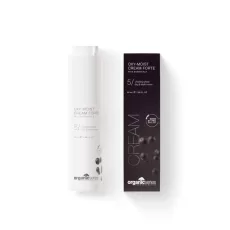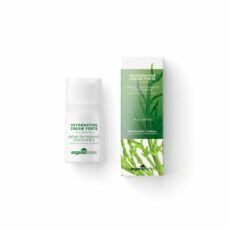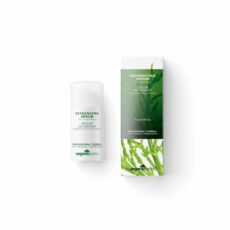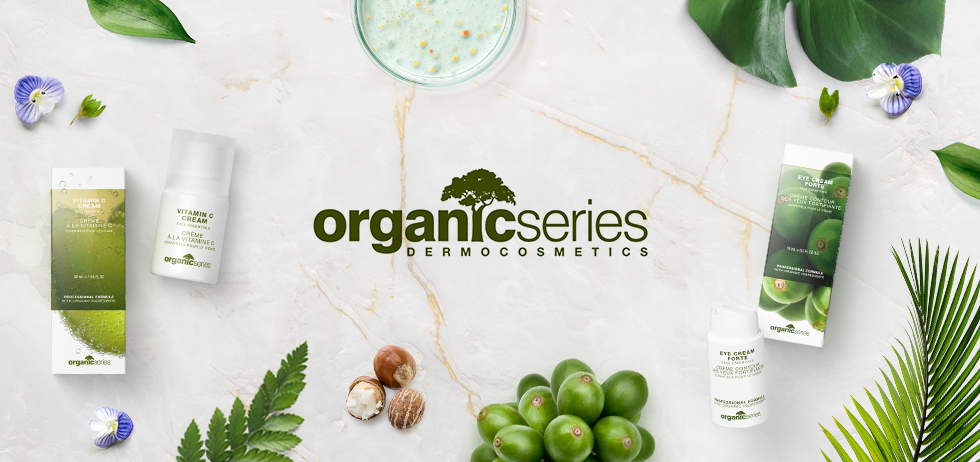12 Best Ways to Use Hyaluronic Acid
In the realm of skincare, hyaluronic acid has emerged as a powerhouse ingredient, promising a fountain of youth for your skin. This naturally occurring substance, found abundantly in our bodies, plays a vital role in maintaining skin hydration, suppleness, and overall health. As we age, our skin tends to lose its natural moisture, leading to dryness, fine lines, and wrinkles. Thankfully, hyaluronic acid can come to the rescue, offering a multitude of benefits for your skin. In this article, we will explore the 12 best ways to use hyaluronic acid to enhance your skincare routine and achieve that coveted youthful glow.
1. Hydrate Your Skin:
Hyaluronic acid is renowned for its incredible ability to retain moisture. When applied to the skin, it acts like a sponge, drawing in and holding onto water molecules. This hydration boost not only helps in combating dryness but also contributes to a plump and youthful complexion. By incorporating hyaluronic acid into your daily skincare routine, you can ensure that your skin remains adequately moisturised throughout the day.
In addition to its hydrating properties, hyaluronic acid has a lightweight and non-greasy texture, making it suitable for all skin types, including oily and acne-prone skin. Unlike heavy moisturisers that can clog pores, hyaluronic acid provides the much-needed hydration without causing breakouts or making your skin feel greasy. Simply apply a few drops of hyaluronic acid serum onto your cleansed face and neck, gently patting it into your skin until fully absorbed. You can follow up with your regular moisturiser for maximum hydration.
Moreover, hyaluronic acid is also beneficial in preventing moisture loss, which is especially crucial during harsh weather conditions. Cold winds and low humidity levels can strip your skin of its natural oils, leaving it dry and vulnerable. By incorporating hyaluronic acid into your skincare regimen, you create a protective barrier that locks in moisture and shields your skin from external aggressors. This can be particularly useful in the winter months when dry skin is a common concern.
Furthermore, hyaluronic acid promotes a radiant complexion by improving skin elasticity. When your skin is well-hydrated, it appears plump and firm, reducing the appearance of fine lines and wrinkles. This enhanced elasticity gives your skin a youthful bounce, making it look smoother and more supple. Regular use of hyaluronic acid can help you achieve a dewy, luminous glow that reflects good health and skincare habits. So, if you want to achieve a complexion that radiates vitality, incorporating hyaluronic acid into your skincare routine is a step in the right direction.
2. Diminish Fine Lines and Wrinkles:
One of the most sought-after benefits of hyaluronic acid is its remarkable ability to diminish fine lines and wrinkles. As we age, our skin’s natural production of hyaluronic acid declines, leading to a loss of moisture and skin elasticity. This reduction in hyaluronic acid levels is a major contributor to the formation of wrinkles and fine lines. However, by topically applying hyaluronic acid, you can effectively address these signs of aging and restore your skin’s youthful appearance.
Hyaluronic acid works its magic by attracting and retaining water, which, in turn, plumps up the skin and fills in fine lines and wrinkles. When your skin is adequately hydrated, these imperfections become less noticeable, giving your complexion a smoother and more refined texture. Unlike invasive procedures such as Botox or dermal fillers, which can be expensive and come with potential risks, hyaluronic acid offers a non-invasive and natural solution to combat aging signs.
Additionally, hyaluronic acid stimulates collagen production in the skin. Collagen is a protein that provides structural support to the skin, keeping it firm and supple. As we age, collagen production slows down, leading to sagging skin and wrinkles. By promoting collagen synthesis, hyaluronic acid helps in maintaining the skin’s firmness and elasticity. This renewed collagen production contributes to a youthful complexion, reducing the appearance of fine lines and wrinkles over time.
Another advantage of using hyaluronic acid to diminish wrinkles is its versatility. Whether you have expression lines around your eyes, deep nasolabial folds, or marionette lines around your mouth, hyaluronic acid can be applied precisely to target these specific areas. Many hyaluronic acid serums come with applicators that allow you to direct the product to the areas that need the most attention. This targeted approach ensures that you get the most out of the product and achieve noticeable results in the areas that matter most to you.
Furthermore, hyaluronic acid is well-tolerated by most skin types, making it a suitable option for individuals with sensitive skin or allergies. It is a gentle yet effective solution for addressing fine lines and wrinkles without causing irritation or redness. By incorporating hyaluronic acid into your skincare routine, you can enjoy smoother, younger-looking skin without the need for invasive procedures or harsh treatments. So, if you’re looking to turn back the clock and restore your skin’s youthful vitality, hyaluronic acid might just be your best ally in the battle against aging.
3. Promote Skin Healing:

Aside from its exceptional hydrating and anti-aging properties, hyaluronic acid also plays a significant role in promoting skin healing. Whether you’re dealing with minor wounds, cuts, or burns, hyaluronic acid can aid in the healing process and contribute to scar reduction. Its ability to accelerate wound healing makes it a valuable asset in skincare formulations and medical applications.
When applied to damaged skin, hyaluronic acid creates a protective barrier that shields the wound from external contaminants, reducing the risk of infection. Simultaneously, it keeps the wound area moist, which is essential for optimal healing. Hyaluronic acid’s moisture-retaining capabilities create an environment conducive to cell regeneration and tissue repair, facilitating the natural healing process of the skin.
Furthermore, hyaluronic acid possesses anti-inflammatory properties, which help in reducing redness, swelling, and discomfort associated with wounds and skin injuries. By calming inflammation, hyaluronic acid promotes a more comfortable healing experience, allowing the skin to recover without excessive discomfort or pain. Its soothing effects make it particularly beneficial for individuals with sensitive or easily irritated skin.
Additionally, hyaluronic acid aids in minimizing the appearance of scars. When the skin is injured, the body’s natural response is to produce collagen to repair the damaged tissue. However, the way collagen fibers are arranged during the healing process can result in visible scars. Hyaluronic acid intervenes in this process by regulating collagen production and ensuring a more uniform arrangement of collagen fibers. As a result, scars appear less raised and prominent, blending more seamlessly with the surrounding skin.
Moreover, hyaluronic acid’s ability to improve skin texture and tone also contributes to scar reduction. By promoting the regeneration of healthy skin cells, hyaluronic acid helps in fading discolouration and unevenness often associated with scars. Whether you have acne scars, surgical scars, or scars from injuries, incorporating hyaluronic acid into your skincare routine can aid in their gradual fading, giving you a smoother and more even complexion.
In the realm of wound care and post-surgery recovery, hyaluronic acid has found applications in medical settings. It is used in dressings, gels, and creams to accelerate wound healing and reduce scarring after surgical procedures. Its effectiveness in promoting skin healing has made it a valuable tool in the hands of dermatologists and healthcare professionals, ensuring optimal outcomes for patients undergoing various treatments or surgeries.
In summary, hyaluronic acid’s ability to promote skin healing, reduce inflammation, and minimize the appearance of scars makes it a versatile and indispensable ingredient in skincare products. Whether you’re dealing with minor cuts, burns, or surgical scars, hyaluronic acid can aid in the healing process, allowing your skin to recover beautifully. By incorporating hyaluronic acid-infused products into your skincare regimen, you can support your skin’s natural healing abilities, ensuring that it remains healthy, smooth, and resilient.
4. Enhance Sun Protection:
In the pursuit of healthy and youthful skin, protection against harmful UV rays is paramount. Sun exposure, while essential for vitamin D synthesis, can cause significant damage to the skin, leading to premature aging, sunburns, and an increased risk of skin cancer. While sunscreen remains a crucial component of sun protection, hyaluronic acid can complement its effectiveness and enhance your skin’s defense against the sun’s harmful effects.
Hyaluronic acid’s moisture-retaining properties play a vital role in sun protection. When your skin is well-hydrated, it becomes more resilient and better equipped to withstand the damaging effects of UV radiation. Dehydrated skin is more susceptible to sunburns, as it lacks the necessary moisture barrier to shield against the sun’s intense rays. By keeping your skin hydrated with hyaluronic acid, you provide an additional layer of protection, reducing the risk of sunburn and skin damage.
Furthermore, hyaluronic acid contributes to the repair of sun-damaged skin. Prolonged sun exposure can lead to the breakdown of collagen and elastin fibers, causing the skin to sag and wrinkle prematurely. Hyaluronic acid’s ability to stimulate collagen production helps in repairing sun-damaged skin, restoring its firmness and elasticity. By promoting collagen synthesis, hyaluronic acid aids in the natural healing process, reversing some of the sun-induced skin damage.
Additionally, hyaluronic acid’s anti-inflammatory properties make it beneficial for soothing sunburned skin. After sun exposure, the skin can become red, swollen, and painful due to inflammation. Hyaluronic acid helps in reducing redness and swelling, providing relief to sunburned skin. Its cooling and calming effects make it a popular choice for after-sun skincare products, helping individuals find comfort after spending time outdoors.
Moreover, hyaluronic acid contributes to the overall health of your skin’s protective barrier. The skin’s natural barrier, composed of lipids and moisture, acts as a shield against environmental aggressors, including UV rays. When your skin is well-hydrated with hyaluronic acid, this barrier remains intact and functional. An intact skin barrier is essential for preventing moisture loss and keeping harmful substances out. By supporting your skin’s natural barrier function, hyaluronic acid ensures that your skin remains healthy, resilient, and capable of defending itself against external threats.
It’s important to note that hyaluronic acid should not replace sunscreen. Instead, it should be used in conjunction with a broad-spectrum SPF to maximize sun protection. By incorporating hyaluronic acid into your skincare routine, you enhance your skin’s natural defenses, ensuring that it remains healthy and protected against the sun’s harmful UV rays. So, if you’re looking to bolster your sun protection efforts and maintain youthful skin, hyaluronic acid can be a valuable addition to your skincare arsenal.
5. Improve Skin Texture and Tone:
Achieving smooth and even skin texture is a common skincare goal for many individuals. Factors such as acne, enlarged pores, uneven skin tone, and rough patches can contribute to an uneven complexion, making it challenging to attain the desired smoothness. Fortunately, hyaluronic acid offers a solution by improving skin texture and tone, helping you achieve a flawless complexion that radiates health and vitality.
Hyaluronic acid’s hydrating properties play a significant role in improving skin texture. When your skin is well-hydrated, it appears plump and supple, reducing the appearance of fine lines, rough patches, and unevenness. Hyaluronic acid acts as a moisture magnet, attracting and retaining water molecules within the skin. This hydration boost creates a smoother surface, diminishing the visibility of imperfections and promoting a more refined skin texture.
Moreover, hyaluronic acid promotes gentle exfoliation, aiding in the removal of dead skin cells that can contribute to a dull complexion. By exfoliating the skin, hyaluronic acid reveals fresh, new skin cells underneath, giving your complexion a brighter and more youthful appearance. Regular use of hyaluronic acid can help in maintaining clear pores and preventing the buildup of dead skin cells, ensuring that your skin remains smooth and radiant.
Additionally, hyaluronic acid’s ability to stimulate collagen production contributes to improved skin texture. Collagen is a protein that provides structure and support to the skin. As we age, collagen production slows down, leading to sagging skin and loss of firmness. By promoting collagen synthesis, hyaluronic acid helps in maintaining the skin’s elasticity and firmness, reducing the appearance of enlarged pores and uneven skin texture. With improved collagen levels, the skin appears more taut and refined, creating a smoother canvas.
Furthermore, hyaluronic acid is effective in addressing hyperpigmentation and uneven skin tone. Dark spots, age spots, and sunspots can mar an otherwise clear complexion. Hyaluronic acid promotes skin renewal and regeneration, helping in fading these discolourations over time. By encouraging the growth of new, healthy skin cells, hyaluronic acid contributes to a more uniform skin tone, reducing the visibility of pigmented areas. Whether you’re dealing with acne scars or sun-induced hyperpigmentation, hyaluronic acid can aid in achieving a balanced and even complexion.
Incorporating hyaluronic acid into your skincare routine can help you attain the smooth, radiant skin you’ve always desired. Whether you’re struggling with rough patches, enlarged pores, or uneven skin tone, hyaluronic acid offers a gentle and effective solution. By providing hydration, promoting exfoliation, stimulating collagen production, and addressing hyperpigmentation, hyaluronic acid transforms your skin, leaving it soft, supple, and beautifully textured. So, if you’re aiming for a complexion that exudes confidence and vitality, hyaluronic acid can be your secret weapon for achieving flawless skin texture and tone.
6. Revitalize Dull and Tired Skin:
If your skin is feeling lacklustre, dull, or tired, hyaluronic acid can come to the rescue, infusing your complexion with a revitalising burst of hydration and energy. Factors such as stress, lack of sleep, environmental pollution, and unhealthy lifestyle choices can take a toll on your skin, leaving it looking dull and fatigued. Fortunately, hyaluronic acid offers a refreshing solution, restoring your skin’s natural radiance and vitality.
Hyaluronic acid’s moisture-retaining abilities play a central role in revitalising dull and tired skin. When your skin is well-hydrated, it appears plump and luminous, reflecting light more effectively and giving your complexion a radiant glow. Hyaluronic acid acts as a hydrating booster, replenishing your skin’s moisture levels and counteracting the effects of dehydration. By infusing your skin with moisture, hyaluronic acid revitalises dull skin, restoring its vitality and natural luminosity.
Moreover, hyaluronic acid promotes skin renewal, aiding in the shedding of dead skin cells and the growth of new, healthy cells. By gently exfoliating the skin, hyaluronic acid removes the dull, lifeless layer of dead skin cells, revealing the fresh, vibrant skin underneath. This exfoliating action creates a smoother surface that reflects light more evenly, enhancing your skin’s natural radiance. Regular use of hyaluronic acid can help in maintaining clear pores and preventing the accumulation of dead skin cells, ensuring that your skin remains bright and revitalised.
Additionally, hyaluronic acid’s ability to improve skin texture contributes to its revitalising effects. By promoting collagen production and maintaining skin elasticity, hyaluronic acid creates a smooth and firm complexion. Skin that is firm and supple reflects light more effectively, giving it a youthful and revitalised appearance. Hyaluronic acid’s skin-smoothing properties help in reducing the visibility of fine lines, wrinkles, and rough patches, creating a revitalised and rejuvenated complexion.
Furthermore, hyaluronic acid’s anti-inflammatory properties help in calming stressed and irritated skin. External factors such as pollution, UV radiation, and harsh weather conditions can trigger skin inflammation, leaving it looking red and fatigued. Hyaluronic acid soothes inflammation, reducing redness and swelling and providing relief to stressed skin. Its calming effects create a revitalised and refreshed complexion, even in the face of environmental challenges.
Incorporating hyaluronic acid into your skincare routine can breathe new life into your skin, revitalising it from within and restoring its natural radiance. Whether you’re dealing with the effects of a hectic lifestyle, lack of sleep, or environmental stressors, hyaluronic acid offers a rejuvenating solution. By providing intense hydration, promoting skin renewal, improving texture, and calming inflammation, hyaluronic acid revitalises your skin, leaving it glowing with health and vitality. So, if you’re looking to revive your dull and tired complexion, hyaluronic acid can be your ticket to achieving radiant and revitalised skin.
7. Balance Oily Skin:
Oily skin can be a challenging issue, often leading to enlarged pores, acne breakouts, and an uneven complexion. While it might seem counterintuitive to apply a hydrating ingredient to oily skin, hyaluronic acid can work wonders in balancing excess oil production and promoting a clear, matte complexion. By incorporating hyaluronic acid into your skincare routine, you can achieve a harmonious balance for your oily skin, ensuring that it remains healthy and blemish-free.
One of the key reasons oily skin tends to produce excess oil is dehydration. When the skin lacks adequate moisture, it compensates by producing more oil, leading to an oily complexion. Hyaluronic acid’s exceptional hydrating properties come into play here. By providing intense hydration to the skin, hyaluronic acid addresses the root cause of excess oil production. When your skin is well-hydrated, it signals the sebaceous glands to produce less oil, creating a more balanced and matte complexion.
Moreover, hyaluronic acid’s lightweight and non-greasy texture make it an ideal choice for oily skin. Unlike heavy creams and moisturisers that can clog pores and exacerbate oiliness, hyaluronic acid is easily absorbed into the skin without leaving a greasy residue. Its fast-absorbing formula ensures that your skin receives the necessary hydration without feeling heavy or oily. This lightweight nature makes hyaluronic acid suitable for everyday use, providing your skin with the hydration it needs without compromising its natural balance.
Additionally, hyaluronic acid helps in maintaining clear pores, reducing the risk of acne breakouts. When pores are clogged with excess oil, dirt, and dead skin cells, it creates a breeding ground for acne-causing bacteria. By hydrating the skin and preventing excessive oil production, hyaluronic acid minimises the risk of pore blockage, ensuring that your skin remains clear and blemish-free. Its pore-refining effects create a smoother complexion, reducing the appearance of enlarged pores and giving your skin a more refined appearance.
Furthermore, hyaluronic acid’s ability to balance oily skin extends to its anti-inflammatory properties. Oily skin is often prone to inflammation, leading to redness and discomfort. Hyaluronic acid soothes inflammation, reducing redness and swelling and providing relief to irritated skin. By calming inflammation, hyaluronic acid creates a more comfortable and balanced complexion, ensuring that your skin remains healthy and resilient.
Incorporating hyaluronic acid into your skincare routine can transform your oily skin, creating a balanced and clear complexion. By providing essential hydration, maintaining clear pores, offering a lightweight texture, and soothing inflammation, hyaluronic acid addresses the specific needs of oily skin. Whether you’re dealing with excess oiliness, enlarged pores, or acne breakouts, hyaluronic acid offers a gentle and effective solution. So, if you’re looking to achieve a matte and balanced complexion, hyaluronic acid can be your go-to ingredient for clear and healthy skin.
8. Soothe and Calm Irritated Skin:
Sensitive and irritated skin requires special care and attention to restore its balance and comfort. Factors such as allergies, harsh weather conditions, and exposure to irritating substances can trigger skin irritation, leading to redness, itching, and discomfort. Hyaluronic acid, with its soothing and hydrating properties, offers a gentle solution to calm irritated skin, providing relief and promoting skin health.
Hyaluronic acid’s ability to retain moisture is particularly beneficial for irritated skin. When the skin is dehydrated, it becomes more vulnerable to external irritants, exacerbating the discomfort. Hyaluronic acid’s moisture-retaining capabilities create a protective barrier, locking in moisture and preventing further dehydration. This hydration boost soothes dry and irritated skin, restoring its natural moisture balance and alleviating discomfort.
Moreover, hyaluronic acid’s lightweight and non-greasy texture make it suitable for sensitive skin. Many individuals with sensitive skin are cautious about using skincare products that might trigger adverse reactions. Hyaluronic acid’s gentle formula ensures that it is well-tolerated by sensitive skin, providing the necessary hydration without causing irritation or redness. Its hypoallergenic nature makes it a safe choice for individuals with delicate or easily irritated skin.
Additionally, hyaluronic acid possesses anti-inflammatory properties, which help in reducing redness and swelling associated with irritated skin. Inflammation is a common response of the skin to irritants, leading to discomfort and sensitivity. Hyaluronic acid calms inflammation, creating a soothing effect on the skin and reducing redness. By addressing inflammation, hyaluronic acid provides relief to irritated skin, creating a more comfortable and relaxed complexion.
Furthermore, hyaluronic acid’s skin-replenishing abilities aid in the repair of the skin’s natural barrier. The skin’s barrier, composed of lipids and moisture, acts as a shield against external irritants. When the barrier is compromised, the skin becomes more susceptible to irritation. Hyaluronic acid supports the restoration of the skin’s barrier, ensuring that it remains intact and functional. An intact skin barrier is essential for preventing moisture loss and keeping irritating substances out. By promoting the health of the skin’s protective barrier, hyaluronic acid creates a resilient and well-protected complexion.
Incorporating hyaluronic acid into your skincare routine can provide much-needed relief to irritated skin, calming redness, and discomfort. By offering hydration, maintaining a gentle formula, soothing inflammation, and supporting the skin’s barrier, hyaluronic acid addresses the specific needs of sensitive and irritated skin. Whether you’re dealing with redness, itching, or discomfort, hyaluronic acid offers a gentle and effective solution. So, if you’re looking to soothe and calm your irritated skin, hyaluronic acid can be your trusted ally in achieving a comfortable and healthy complexion.
9. Prevent and Treat Acne:

Acne, a common skin condition that affects people of all ages, can be a source of frustration and discomfort. While there are various treatments available, hyaluronic acid offers a unique approach to preventing and treating acne. By incorporating hyaluronic acid into your skincare routine, you can effectively address the underlying factors that contribute to acne breakouts, ensuring a clear and blemish-free complexion.
One of the primary causes of acne is excess oil production, which can clog pores and create a breeding ground for acne-causing bacteria. Hyaluronic acid plays a key role in regulating oil production. When your skin is well-hydrated with hyaluronic acid, it signals the sebaceous glands to produce less oil. By maintaining the skin’s moisture balance, hyaluronic acid prevents excessive oiliness, reducing the risk of pore blockage and acne breakouts. Its oil-balancing properties create a matte and clear complexion, ensuring that your skin remains free from excess oil.
Moreover, hyaluronic acid’s ability to promote gentle exfoliation is beneficial for preventing and treating acne. Dead skin cells can accumulate on the surface of the skin, clogging pores and contributing to acne formation. By exfoliating the skin, hyaluronic acid helps in removing dead skin cells, preventing pore blockage and reducing the risk of acne breakouts. Its exfoliating action creates a smoother surface, ensuring that your skin remains clear and blemish-free.
Additionally, hyaluronic acid’s anti-inflammatory properties are valuable for soothing acne-prone skin. Acne breakouts are often accompanied by redness, swelling, and discomfort due to inflammation. Hyaluronic acid calms inflammation, reducing redness and swelling and providing relief to irritated skin. By addressing inflammation, hyaluronic acid promotes a more comfortable and clear complexion, ensuring that your skin remains healthy and resilient.
Furthermore, hyaluronic acid’s skin-replenishing abilities aid in the repair of acne-damaged skin. Acne breakouts can leave behind scars, uneven skin tone, and texture issues. Hyaluronic acid supports the regeneration of healthy skin cells, helping in fading acne scars and promoting an even skin tone. By encouraging the growth of new, healthy skin cells, hyaluronic acid minimises the visibility of acne-related imperfections, ensuring that your skin appears smooth and clear.
Incorporating hyaluronic acid into your skincare routine can help in preventing and treating acne, providing a clear and blemish-free complexion. By regulating oil production, promoting exfoliation, calming inflammation, and supporting skin repair, hyaluronic acid addresses the specific needs of acne-prone skin. Whether you’re dealing with occasional breakouts or persistent acne, hyaluronic acid offers a gentle and effective solution. So, if you’re looking to achieve clear and healthy skin, hyaluronic acid can be your trusted ally in the battle against acne.
10. Protect Against Environmental Damage:
Our skin is constantly exposed to environmental aggressors such as pollution, UV radiation, and harsh weather conditions. These external factors can cause significant damage to the skin, leading to premature aging, pigmentation issues, and a compromised complexion. Hyaluronic acid, with its protective and repairing properties, offers a shield against environmental damage, ensuring that your skin remains healthy and resilient.
Hyaluronic acid’s moisture-retaining abilities play a crucial role in protecting the skin against environmental damage. When your skin is well-hydrated, it becomes more resilient and better equipped to withstand the harmful effects of pollution and UV radiation. Dehydrated skin is more susceptible to environmental stressors, making it important to maintain optimal moisture levels. Hyaluronic acid’s hydration boost creates a protective barrier, preventing the penetration of pollutants and external irritants. By providing a moisture shield, hyaluronic acid ensures that your skin remains healthy and protected against environmental damage.
Moreover, hyaluronic acid promotes skin repair, aiding in the recovery of environmentally stressed skin. Pollution and UV radiation can cause collagen degradation, leading to sagging skin and wrinkles. Hyaluronic acid’s ability to stimulate collagen production helps in repairing the skin’s structure, restoring its firmness and elasticity. By promoting collagen synthesis, hyaluronic acid aids in the natural healing process, reversing some of the environmental damage and maintaining the skin’s youthful appearance.
Additionally, hyaluronic acid’s anti-inflammatory properties are valuable for soothing environmentally stressed skin. Pollution and external irritants can trigger skin inflammation, leading to redness and discomfort. Hyaluronic acid calms inflammation, reducing redness and swelling and providing relief to stressed skin. By addressing inflammation, hyaluronic acid creates a more comfortable and protected complexion, ensuring that your skin remains healthy and resilient in the face of environmental challenges.
Furthermore, hyaluronic acid’s skin-replenishing abilities contribute to the repair of environmental damage. Pollution and UV radiation can weaken the skin’s protective barrier, making it more vulnerable to external aggressors. Hyaluronic acid supports the restoration of the skin’s barrier, ensuring that it remains intact and functional. An intact skin barrier is essential for preventing moisture loss and keeping harmful substances out. By promoting the health of the skin’s protective barrier, hyaluronic acid creates a resilient and well-protected complexion.
Incorporating hyaluronic acid into your skincare routine can shield your skin against environmental damage, ensuring that it remains healthy and resilient. By providing hydration, promoting skin repair, calming inflammation, and supporting the skin’s protective barrier, hyaluronic acid addresses the specific needs of environmentally stressed skin. Whether you’re dealing with pollution, UV radiation, or harsh weather conditions, hyaluronic acid offers a gentle and effective solution. So, if you’re looking to protect your skin from environmental aggressors and maintain a healthy complexion, hyaluronic acid can be your reliable partner in skincare.
11. Enhance Skin Elasticity:
Skin elasticity, the ability of the skin to stretch and bounce back, is a vital aspect of youthful and healthy-looking skin. As we age, our skin’s natural elasticity diminishes, leading to sagging and the formation of wrinkles. Hyaluronic acid, with its collagen-boosting and moisture-retaining properties, plays a significant role in enhancing skin elasticity, ensuring that your skin remains firm and supple.
One of the key factors in skin elasticity is collagen, a protein that provides structural support to the skin. Collagen fibers give the skin its firmness and resilience, contributing to its ability to stretch and return to its original shape. Hyaluronic acid stimulates collagen production in the skin, aiding in the maintenance of its elasticity. By promoting collagen synthesis, hyaluronic acid helps in preserving the skin’s firmness and preventing sagging. With improved collagen levels, the skin appears more taut and elastic, creating a youthful and lifted complexion.
Moreover, hyaluronic acid’s moisture-retaining abilities are essential for enhancing skin elasticity. When your skin is well-hydrated, it appears plump and supple, reducing the appearance of fine lines and wrinkles. Hyaluronic acid acts as a hydration booster, attracting and retaining water molecules within the skin. This hydration boost creates a smoother and more elastic surface, diminishing the visibility of imperfections and promoting skin elasticity. Well-hydrated skin has the flexibility to stretch and bounce back, ensuring that your complexion remains firm and youthful.
Additionally, hyaluronic acid’s skin-replenishing properties aid in improving skin texture and tone, contributing to enhanced elasticity. By supporting the regeneration of healthy skin cells, hyaluronic acid helps in fading discolouration and unevenness often associated with age-related skin changes. A more even skin tone and texture create a smoother surface, enhancing the skin’s overall elasticity. Hyaluronic acid’s ability to create a balanced complexion ensures that your skin appears vibrant and youthful.
Furthermore, hyaluronic acid’s protective effects on the skin’s natural barrier are valuable for maintaining skin elasticity. The skin’s barrier, composed of lipids and moisture, acts as a shield against external stressors. When the barrier is compromised, the skin becomes more susceptible to damage, leading to loss of elasticity. Hyaluronic acid supports the restoration of the skin’s barrier, ensuring that it remains intact and functional. An intact skin barrier is essential for preventing moisture loss and maintaining the skin’s elasticity. By promoting the health of the skin’s protective barrier, hyaluronic acid creates a resilient and elastic complexion.
Incorporating hyaluronic acid into your skincare routine can enhance your skin’s elasticity, ensuring that it remains firm and supple. By stimulating collagen production, providing hydration, improving texture and tone, and supporting the skin’s protective barrier, hyaluronic acid addresses the specific needs of aging skin. Whether you’re dealing with sagging skin or fine lines, hyaluronic acid offers a gentle and effective solution. So, if you’re looking to maintain youthful and elastic skin, hyaluronic acid can be your secret weapon for achieving a firm and lifted complexion.
12. Achieve a Youthful and Radiant Complexion:
A youthful and radiant complexion is a timeless aspiration, reflecting health, vitality, and overall well-being. While aging and environmental factors can affect the skin’s appearance, hyaluronic acid offers a holistic approach to achieving a youthful and radiant complexion. By incorporating hyaluronic acid into your skincare routine, you can enhance your skin’s hydration, texture, and luminosity, ensuring that your complexion exudes youthfulness and radiance.
One of the key factors in a youthful complexion is skin hydration. Well-hydrated skin appears plump and supple, reducing the visibility of fine lines and wrinkles. Hyaluronic acid’s exceptional moisture-retaining abilities play a central role in skin hydration. When applied to the skin, hyaluronic acid acts as a hydration magnet, attracting and holding onto water molecules. This hydration boost creates a smoother and more youthful surface, diminishing the appearance of imperfections and promoting a radiant complexion. A well-hydrated complexion reflects light more effectively, giving your skin a luminous glow.
Moreover, hyaluronic acid’s collagen-boosting properties contribute to a youthful complexion. Collagen is a protein that provides structural support to the skin, maintaining its firmness and elasticity. As we age, collagen production slows down, leading to sagging skin and wrinkles. Hyaluronic acid stimulates collagen synthesis, helping in preserving the skin’s youthful appearance. By promoting collagen production, hyaluronic acid ensures that the skin remains taut and firm, reducing the visibility of fine lines and creating a more youthful complexion.
Additionally, hyaluronic acid’s ability to improve skin texture and tone enhances the overall appearance of the complexion. By promoting the regeneration of healthy skin cells, hyaluronic acid helps in fading discolouration and unevenness often associated with aging. A more even skin tone and texture create a smoother surface, contributing to a youthful and radiant complexion. Hyaluronic acid’s skin-smoothing effects ensure that your skin appears vibrant and youthful.
Furthermore, hyaluronic acid’s protective effects on the skin’s barrier are valuable for maintaining a radiant complexion. The skin’s barrier, composed of lipids and moisture, acts as a shield against environmental stressors. When the barrier is compromised, the skin becomes more susceptible to damage, leading to dullness and loss of radiance. Hyaluronic acid supports the restoration of the skin’s barrier, ensuring that it remains intact and functional. An intact skin barrier is essential for retaining moisture and preserving the skin’s luminosity. By promoting the health of the skin’s protective barrier, hyaluronic acid creates a radiant and youthful complexion.
Conclusion
Incorporating hyaluronic acid into your skincare routine can help you achieve a youthful and radiant complexion that exudes health and vitality. By providing hydration, stimulating collagen production, improving texture and tone, and supporting the skin’s protective barrier, hyaluronic acid addresses the specific needs of aging skin. Whether you’re dealing with fine lines, dullness, or uneven skin tone, hyaluronic acid offers a gentle and effective solution. So, if you’re looking to attain a complexion that radiates youthfulness and radiance, hyaluronic acid can be your secret weapon for achieving a luminous and vibrant skin.
In conclusion, hyaluronic acid stands as a versatile and powerful ingredient in the realm of skincare. Its exceptional hydrating, anti-aging, and skin-repairing properties make it a valuable addition to any skincare routine. By incorporating hyaluronic acid into your daily regimen, you can achieve a complexion that is well-hydrated, youthful, and radiant. Whether you’re looking to combat dryness, reduce fine lines, soothe irritated skin, or protect against environmental damage, hyaluronic acid offers a gentle and effective solution. Embrace the benefits of hyaluronic acid and unlock the secret to healthy, supple, and luminous skin.
Expert recommendation
Organic Series Hyaluronic Acid
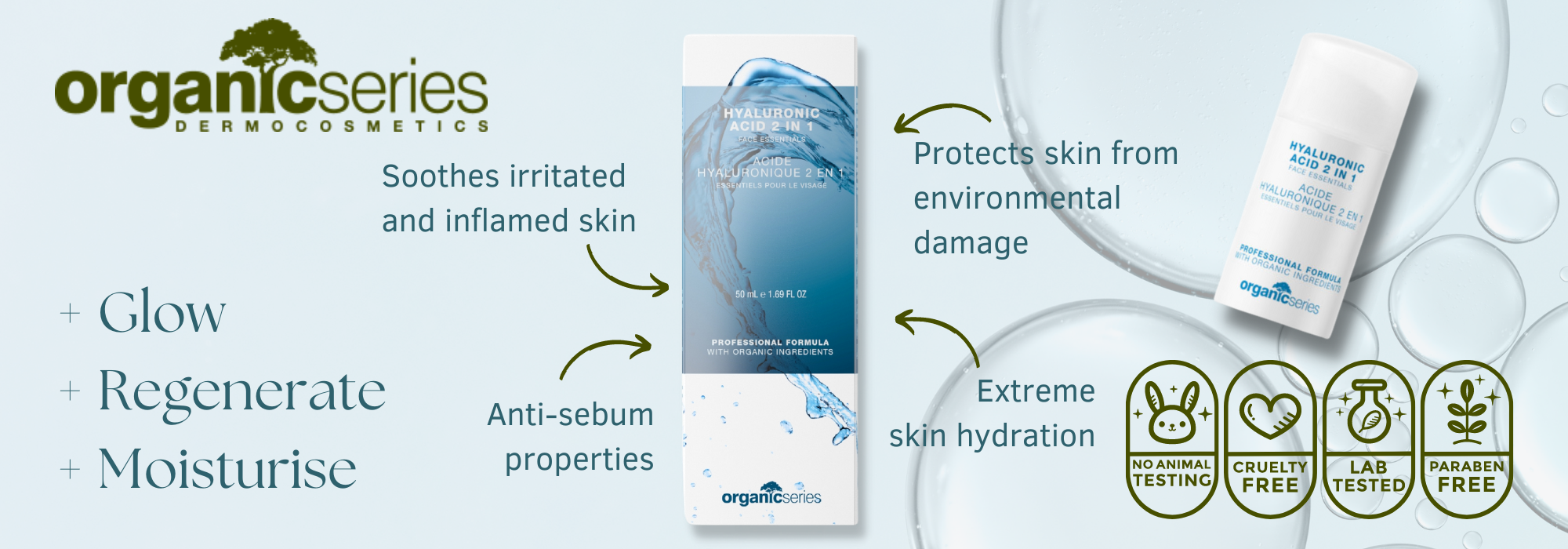
Benefits
- Enriched with rich antioxidants that provide effective protection to the skin from environmental damage.
- Has a light and gentle formula that gets quickly absorbed into the skin and keeps the skin nourished and hydrated for a long time.
- Soothes irritated and inflamed skin.
- Provides healing to the skin’s outer layer that seals it from further drying and damage whilst also improving its appearance.
- Has anti-sebum properties that aid in reducing extreme greasiness and reduce the appearance of oil on the skin.
How to use
Cleanse your face thoroughly with a mild face wash. After cleansing it, put a couple of hyaluronic acid on a cotton pad or the palm of your hands. Apply it on your face while the skin is still damp. Don’t miss on the Organic Series Moisturiser immediately afterward to seal in the hydration.
Expert tips
To intensify the effect of 2in1 hyaluronic acid, combine it in evening care with any Organic Series serum. Thanks to this, in addition to anti-aging and strongly regenerating effects, you will provide your skin with other valuable active ingredients.
Active ingredients
- Low and high molecular weight Hyaluronic Acid – retains large amounts of water in the epidermis, moisturises, has anti-aging, firming, regenerating effects.
Ingredients
Aqua, Sodium hyaluronate, Benzyl Alcohol, Dehydroacetic Acid.
Hazards and Cautions
Store in a dry, dark and cool place. Keep out of reach of children
More inspiration
Follow Organic Series UK on instagram and facebook
Frequently asked questions
Can I use hyaluronic acid instead of cream? – Hyaluronic acid is not a stand-alone cosmetic, it is not interchangeable with cream. Hyaluronic acid should be applied to the face and neck before applying the cream, during daily care. Using our Organic Hyaluronic Acid will strengthen the effects of the cream.
Why can hyaluronic acid roll over under makeup? – Hyaluronic acid, due to its formula – hydrogel leaves a thin layer of the product on the skin. Due to the subsequent friction resulting from the application of the foundation, the hyaluronic acid can be rolled up. To avoid this, after using our Organic Hyaluronic Acid you should spray the skin with a micronized booster face mist before applying the cream.
Is hyaluronic acid good for hair? How to apply hyaluronic acid to hair? – Hyaluronic acid can be very beneficial for your hair as well – it works perfectly to bind the moisture inside the hair structure. To achieve best results you need to apply our Organic Hyaluronic Acid to damp hair and then use a Leave-In Hair Conditioner to lock in the moisture.
Is hyaluronic acid safe during pregnancy? Can you use hyaluronic acid when pregnant? – Yes, hyaluronic acid is perfectly safe to use when pregnant and during breastfeeding. Our Organic Hyaluronic Acid is very popular among pregnant women and they absolutely love the glow that it gives their skin!
Can you use hyaluronic acid with vitamin c? – Yes, it’s a very good combination to use hyaluronic acid with vitamin C. They work in synergy to provide your skin with moisture and radiance. It’s a great idea to use our Organic Hyaluronic Acid before applying our Organic Vitamin C Cream.
Is hyaluronic acid good for acne? – Hyaluronic Acid itself will not be able to fight acne but it is extremely beneficial to include it in your acne skincare routine to make sure that your skin remains perfectly hydrated throughout the acne treatment which can sometimes be a bit drying for the skin. It can bring great results to use our Organic Hyaluronic Acid before applying the Organic Acne Cream.
Glow Organic Skincare By Organic Series
-
Face Moisturiser with Sunscreen SPF20 | Moisturising Cream SPF20 By Organic Series | 15ml, 50ml, 200ml
From £ 12.00Rated 4.89 out of 509 reviews -
Organic Hyaluronic Acid 2-in-1 | By Organic Series | 50ml, 200ml
From £ 52.00Rated 5.00 out of 503 reviews -
Organic Vitamin C Serum 10% | By Organic Series | 15 ml, 50 ml, 200 ml
From £ 12.00Rated 5.00 out of 505 reviews -

Maria
Cosmetic Chemist
Maria
All Author Posts
